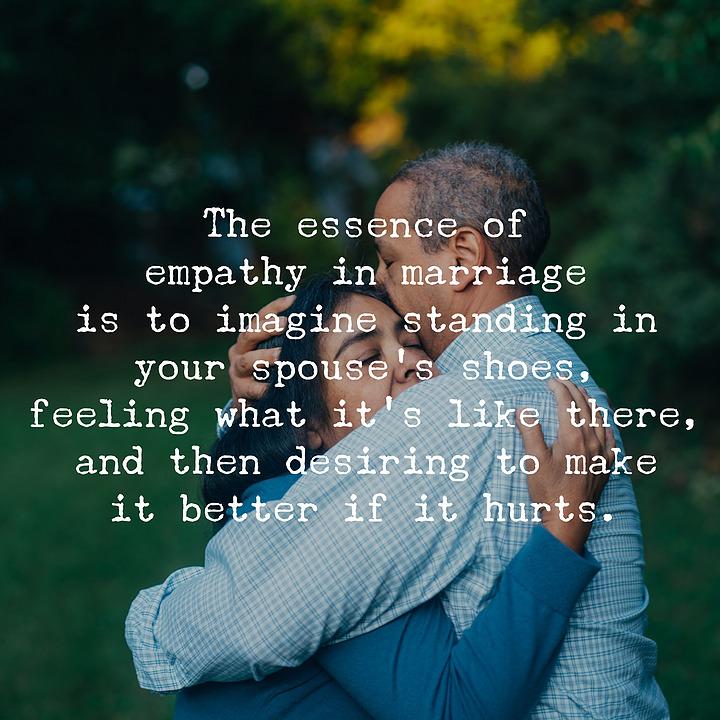In the intricate dance of dating, confidence often takes center stage, twirling gracefully in the spotlight of attraction. It’s a quality many of us seek in a partner, believing it to be the golden ticket to a successful relationship. But what happens when the spotlight shifts, revealing someone whose confidence is not as polished, perhaps hidden in the shadows of self-doubt? Should we sidestep these individuals, or is there more to discover beneath the surface of low confidence? This article delves into the nuanced realm of dating dynamics, exploring whether shying away from those with low confidence is a wise decision or a missed opportunity for deeper connection. As we unravel the complexities of confidence in romantic relationships, we invite you to challenge preconceived notions and open your heart to the unexpected possibilities that might lie in embracing vulnerability.
Understanding the Impact of Low Confidence on Relationship Dynamics
When it comes to the dance of dating, the energy one brings into a relationship can dramatically influence its rhythm and harmony. Low confidence can sometimes act as a subtle undertow, pulling down the buoyancy of connection. Individuals who grapple with self-doubt may exhibit a range of behaviors that could challenge the dynamics of a budding relationship. For instance, they might struggle with expressing their needs, leading to misunderstandings or unmet expectations. This can be further complicated by a tendency to seek constant reassurance, which might place an unspoken burden on their partner.
- Insecurity-driven jealousy can arise, creating an environment where trust is continually questioned.
- Overdependence on a partner for validation can stifle personal growth and lead to an imbalance in relationship dynamics.
- Communication barriers may form, as those with low confidence might fear judgment or rejection, thus holding back their true feelings.
Despite these potential challenges, it’s essential to remember that confidence is a spectrum, not a fixed trait. Understanding and patience can sometimes transform these initial hurdles into opportunities for growth, both individually and as a couple. After all, everyone deserves a chance to shine, even if their light flickers at first.
Identifying Signs of Low Confidence in Potential Partners
Recognizing subtle cues of diminished self-assurance in a potential partner can be pivotal in understanding the dynamics of a relationship. Often, those with low confidence may exhibit certain behavioral patterns that can serve as indicators. Watch for signs such as:
- Frequent self-deprecation: Regularly making jokes at their own expense or belittling their achievements might indicate an underlying lack of self-worth.
- Excessive need for validation: Constantly seeking reassurance from you or others about their choices and appearance can suggest a fragile self-image.
- Avoidance of new experiences: Hesitation or refusal to try new activities or engage in social situations might stem from a fear of failure or judgment.
Moreover, individuals with low confidence might struggle with expressing their needs and desires in a relationship. This could manifest as reluctance to communicate openly or make decisions, often deferring to their partner’s preferences. Understanding these signals is crucial, not to stigmatize, but to approach the relationship with empathy and awareness, allowing for a more supportive and nurturing environment.

Balancing Empathy and Personal Boundaries in Dating
- Understanding Empathy: In dating, empathy can be a beautiful bridge that connects two people. It allows you to understand and support each other’s feelings and perspectives. However, it’s crucial to ensure that this empathy doesn’t overshadow your own needs. When dating someone with low confidence, you may feel compelled to constantly reassure and uplift them, which can be emotionally taxing. Striking a balance is essential to ensure that your relationship is mutually supportive rather than one-sided.
- Setting Personal Boundaries: Establishing clear boundaries is vital for a healthy relationship. While it’s important to be empathetic, it’s equally important to protect your own emotional well-being. Be mindful of how much emotional labor you are willing to invest and communicate your boundaries clearly. A relationship should be a partnership where both individuals feel valued and respected. By setting boundaries, you not only protect yourself but also encourage your partner to work on their self-confidence independently, fostering growth and resilience.

Strategies for Supporting a Partner with Low Confidence
When you’re in a relationship with someone who struggles with low confidence, it’s important to cultivate an environment that encourages growth and self-assurance. Here are some strategies to help support your partner:
- Practice Active Listening: Make a conscious effort to listen attentively to your partner’s concerns and feelings. This demonstrates that you value their thoughts and are there to support them.
- Encourage Positive Self-Talk: Help your partner identify and challenge negative self-perceptions. Encourage them to replace these thoughts with positive affirmations and realistic self-appraisals.
- Celebrate Achievements: Acknowledge and celebrate even the smallest of accomplishments. Recognizing their efforts can help build their confidence over time.
- Foster Independence: Encourage your partner to pursue hobbies and activities that they enjoy. Supporting their individual growth can empower them to feel more confident in their abilities.
- Be Patient: Building confidence is a gradual process. Offer your unwavering support and understanding as your partner navigates their journey towards greater self-assurance.
Remember, your role is not to “fix” your partner but to provide a supportive foundation from which they can grow. By nurturing a loving and encouraging relationship, you can help them unlock their potential and embrace their true self.








